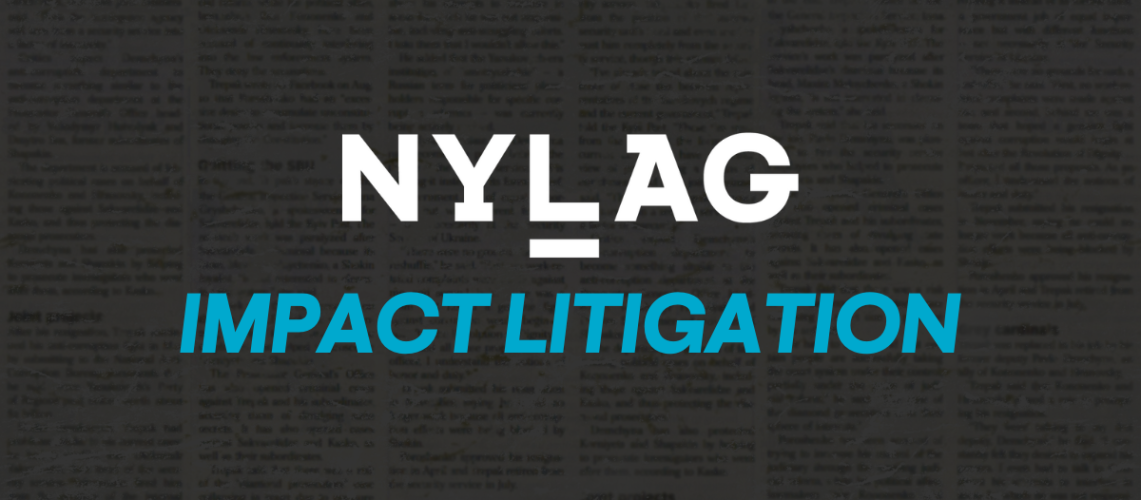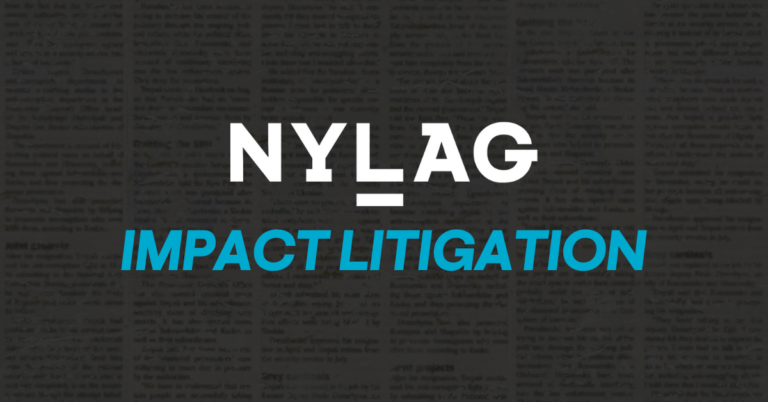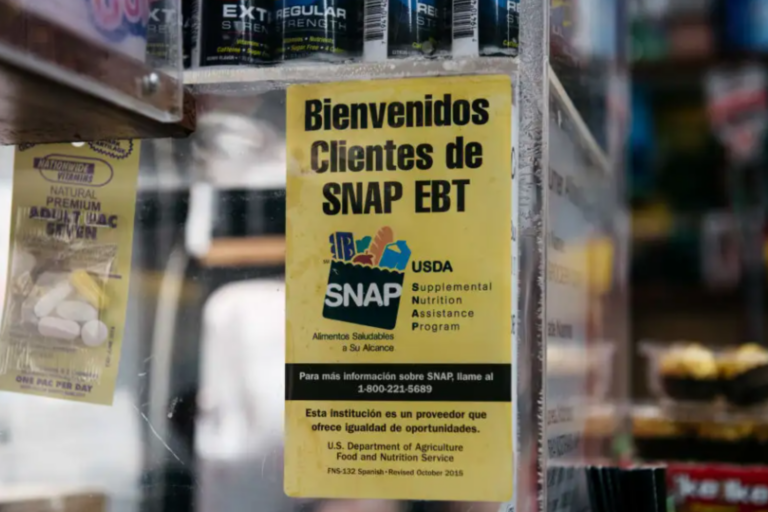Background
On April 4, 2023, NYLAG’s Special Litigation Unit and Public Benefits Unit submitted a Freedom of Information (“FOIA”) request to the Social Security Administration (“SSA”) seeking records relating to SSA’s proposed implementation of a payroll matching process with Equifax to administer Social Security Disability Insurance benefits and Supplemental Security Income benefits. Wage and employment data matching of the type proposed by SSA has the potential to risk erroneous terminations and denials of benefits that individuals rely on for critical food, housing, and medical expenses.
Specifically, NYLAG sought information about the contracts and agreements made between SSA and Equifax providing for the exchange of payroll data, about internal guidance, policies, and procedures relating to the proposed exchange, and on its technical specifications and accuracy.
After NYLAG filed a FOIA lawsuit, SSA produced the contract it had entered into with Equifax, pricing tables, an addendum which outlined the specific standards for the Equifax payroll information exchange, and relevant data privacy and security guidelines for the development of such a system.
On February 15, 2024, SSA issued a Notice of Proposed Rulemaking that sets forth a proposed rule for the use of this data matching process. Comments are due by April 15, 2024.
Because these materials are likely of interest to other advocates, and to the public at large, NYLAG is sharing key takeaways. NYLAG is also sharing the full set of responsive materials received from SSA in the Document Library below.
Key Takeaways:
- How SSA-Equifax Data Matching Will Work: On page 7, the Statement of Work discusses the mechanics behind Equifax’s data matching process. The Equifax web service receives a social security number (SSN) from SSA and searches for a match of that SSN in its system. If the web service generates a “matched hit,” it will return any wage and employment data that Equifax has for that SSN during a specified time period.
- Procedures for Accuracy: On page 22, the Statement of Work claims that Equifax will “maintain reasonable procedures that ensure the maximum possible accuracy” of wage and employment data. Additionally, Equifax is required to report any errors and provided corrected wage and employment information to SSA within twenty-four hours of discovery. The document does not elaborate on what corrective measures will be taken by SSA as pertains to benefit determinations.
- Study of Accuracy of the Data Provided by Equifax: The PIE study claims a 95.6% level of accuracy between Equifax wage and employment data and SSI recipients’ user-submitted data. The high level of accuracy in the PIE study was obtained after a manual review of mismatches revealed that many errors were made by the computer software that SSA uses to translate an SSI recipient’s paystub images into text. The authors of the study concluded that after correcting for these image translation errors, the initial accuracy rate of 80% could be revised up to 95.6%.2.
- Internal Memos: The March 2023 memo, and the revised estimates presented in the May 2023 memo, indicate that SSA expects implementation of a monthly automated payroll exchange with Equifax to result in net Federal benefit reductions of $1.8 billion and $1.9 billion for the OASDI and SSI programs, respectively. SSA attributes these net benefit reductions to the generally earlier identification and correction of wage amounts that would be facilitated by the payroll information exchange.
Document Library:
Document Title | Description |
The contract and coversheet for the provision of an electronic payroll information exchange. | |
SSA-Equifax Contract Attachment D-1: Pricing Tables | Pricing tables that calculate costs of Equifax payroll information exchange. |
SSA-Equifax Contract Attachment D-2: Statement of Work | Addendum to the contract which outlines the standards for and scope of the electronic payroll information exchange. |
SSA-Equifax Contract Attachment D-5: SSA System Security Requirements for Contractors & Non-Federal Organizations | Guide prepared by the SSA Office of Information Security for all contractors and non-federal organizations to provide required security controls and measures to ensure the safeguarding of SSA data. |
SSA-Equifax Contract Attachment D-6: Privacy Requirements | Table of privacy laws, requirements, directives, policies, standards, and guidelines that apply to the electronic payroll information exchange. |
SSA-Equifax Contract Attachment D-7: Information Security Policy for SSA | Manual with protocols intended to protect non-public information at SSA. |
SSA-Equifax Contract Attachment D-8: Data Usage Agreement – Required Notices | Sample notices SSA must provide beneficiaries to obtain consent for Equifax to share wage and employment data |
SSA-Equifax Contract Attachment D-9: Additional Information Security & Privacy Requirements for Cloud-Based Solutions | Additional information security and privacy requirements for contractors who render cloud-based services. |
SSA-Equifax Contract Attachment D-10: PIE Wage Data Accuracy Study | Wage data accuracy study conducted by SSA which reports that Equifax PIE data matches with SSA Mobile Wage Report data at ~95% accuracy. |
Internal SSA memo discussing the estimated cost savings of implementing a monthly automated payroll information exchange with Equifax on SSI and OASDI benefit calculations. | |
Internal SSA memo which revised cost savings estimates from the March 2023 memo based on additional payroll provider data from Equifax. | |
A heavily redacted summary of testing conducted by SSA to determine the overlap between SSA data on SSI recipients and data provided by Equifax. | |
Operations Analysis: BBA Section 824 – Payroll Information Exchange (PIE) | A heavily redacted report which examines the projected value of a payroll information exchange with Equifax relative to its cost of implementation. |







